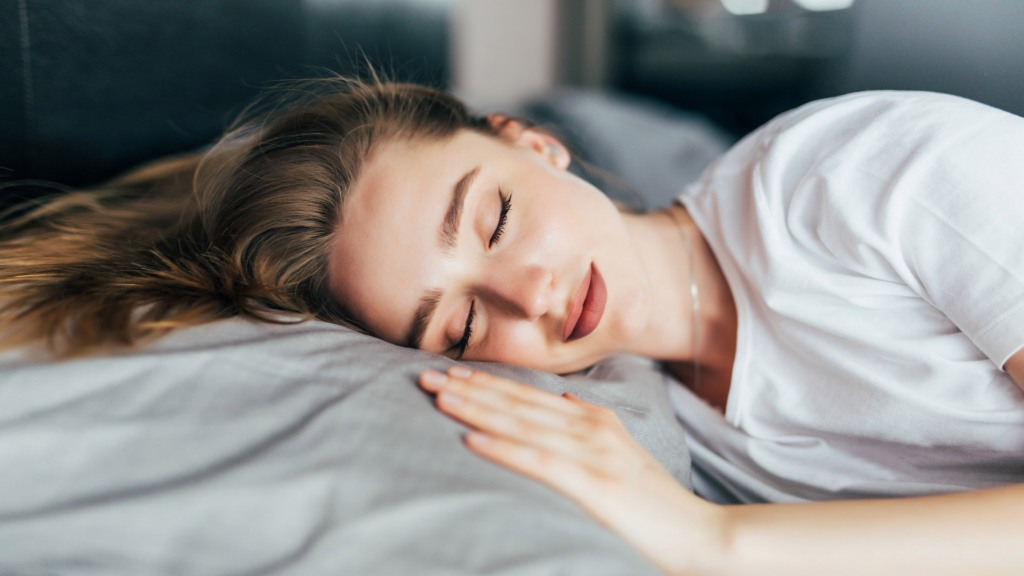These 5 Simple Sleep Habits Could Help You Live Longer – Sleep is not just a luxury—it’s a cornerstone of longevity, vitality, and overall well-being. While we often prioritize diet, exercise, and stress management, sleep quietly works behind the scenes as the unsung hero of our health. Recent studies have shown that consistently getting high-quality sleep can lower the risk of chronic diseases, improve mental clarity, and even extend lifespan. According to Dr. Matthew Walker, a renowned sleep scientist and author of Why We Sleep, “Sleep is the single most effective thing we can do to reset our brain and body health each day.”
In fact, research published in the journal JAMA Network Open found that adults who consistently slept 7-8 hours per night had a significantly lower risk of premature death compared to those who slept less or more. The message is clear: prioritizing sleep isn’t just about feeling rested—it’s about living longer and thriving.
Also Read: Top Core Exercises Seniors Need for a Pain-Free Life
You don’t need a radical overhaul to improve your sleep. By adopting these five simple habits, you can transform your nights and, in turn, your life. Let’s dive in.
Table of Contents
1. Maintain a Consistent Sleep Schedule
Your body thrives on routine, and sleep is no exception. Going to bed and waking up at the same time every day—even on weekends—helps regulate your internal clock, also known as your circadian rhythm. This consistency makes it easier to fall asleep and wake up naturally, improving both the quality and duration of your rest.
A study from Harvard Medical School highlights that irregular sleep patterns can disrupt hormones, increase inflammation, and even raise the risk of heart disease. “Think of your sleep schedule as setting an appointment with yourself,” says Dr. Shelby Harris, a clinical psychologist specializing in sleep disorders. “Consistency trains your brain to know when it’s time to wind down and when it’s time to rise.”
2. Limit Screen Time Before Bed
The blue light emitted by phones, tablets, and TVs can wreak havoc on your sleep. It tricks your brain into thinking it’s daytime, suppressing melatonin production—the hormone responsible for making you feel sleepy. A 2022 study from the National Sleep Foundation found that reducing screen exposure in the hour before bed improved sleep onset and quality for nearly 80% of participants.
To break this habit, create a “digital curfew” at least 30-60 minutes before bedtime. Instead of scrolling, try reading a book, journaling, or practicing gratitude. As Dr. Lisa Medalie, a behavioral sleep medicine specialist, explains, “Replacing screens with calming activities signals to your brain that it’s time to transition into rest mode.”
Also Read: Torch Belly Fat in 1 Month With This Boot Camp Plan
3. Optimize Your Sleep Environment

Your bedroom should be a sanctuary for sleep—not a multipurpose space for work, TV, or clutter. Small adjustments to your sleep environment can make a big difference. Start by keeping your room cool (between 60-67°F is ideal), dark, and quiet. Blackout curtains, earplugs, or a white noise machine can help block out distractions.
Investing in a comfortable mattress and pillows is also key. According to the Better Sleep Council, upgrading your sleep surface can reduce tossing and turning by up to 50%. “Your bed is the foundation of good sleep,” says Dr. Rebecca Robbins, a sleep researcher at Brigham and Women’s Hospital. “If it’s uncomfortable, everything else becomes harder.”
4. Practice Relaxation Techniques
Stress and anxiety are common culprits of poor sleep. Practicing relaxation techniques before bed can help calm your mind and prepare your body for rest. Deep breathing exercises, progressive muscle relaxation, and meditation are all effective tools. For example, the “4-7-8” breathing technique—inhaling for 4 seconds, holding for 7, and exhaling for 8—has been praised by experts for its ability to induce calmness quickly.
Apps like Calm and Headspace offer guided meditations designed specifically for sleep. “Mindfulness practices can rewire your brain to respond to stress differently, making it easier to drift off,” notes Dr. Andrew Huberman, a neuroscientist and host of the Huberman Lab Podcast.
Even spending 5-10 minutes practicing gratitude or visualizing a peaceful scene can shift your mindset and set the stage for restorative sleep.
Also Read: Build Core Strength Fast With This 7-Minute Plank Workout
5. Manage Caffeine Intake Wisely
Caffeine is a beloved pick-me-up, but timing matters. Consuming caffeine too late in the day can linger in your system and interfere with sleep. Research shows that caffeine has a half-life of about 5-6 hours, meaning if you drink a cup of coffee at 4 PM, half of it is still in your bloodstream by 10 PM.
To safeguard your sleep, aim to cut off caffeine consumption at least 6-8 hours before bedtime. Swap your afternoon latte for herbal tea or water, and pay attention to hidden sources of caffeine, such as chocolate or certain medications. “Being mindful of what—and when—you consume stimulants can profoundly impact your ability to fall and stay asleep,” advises Dr. Michael Breus, a clinical psychologist and sleep expert.




